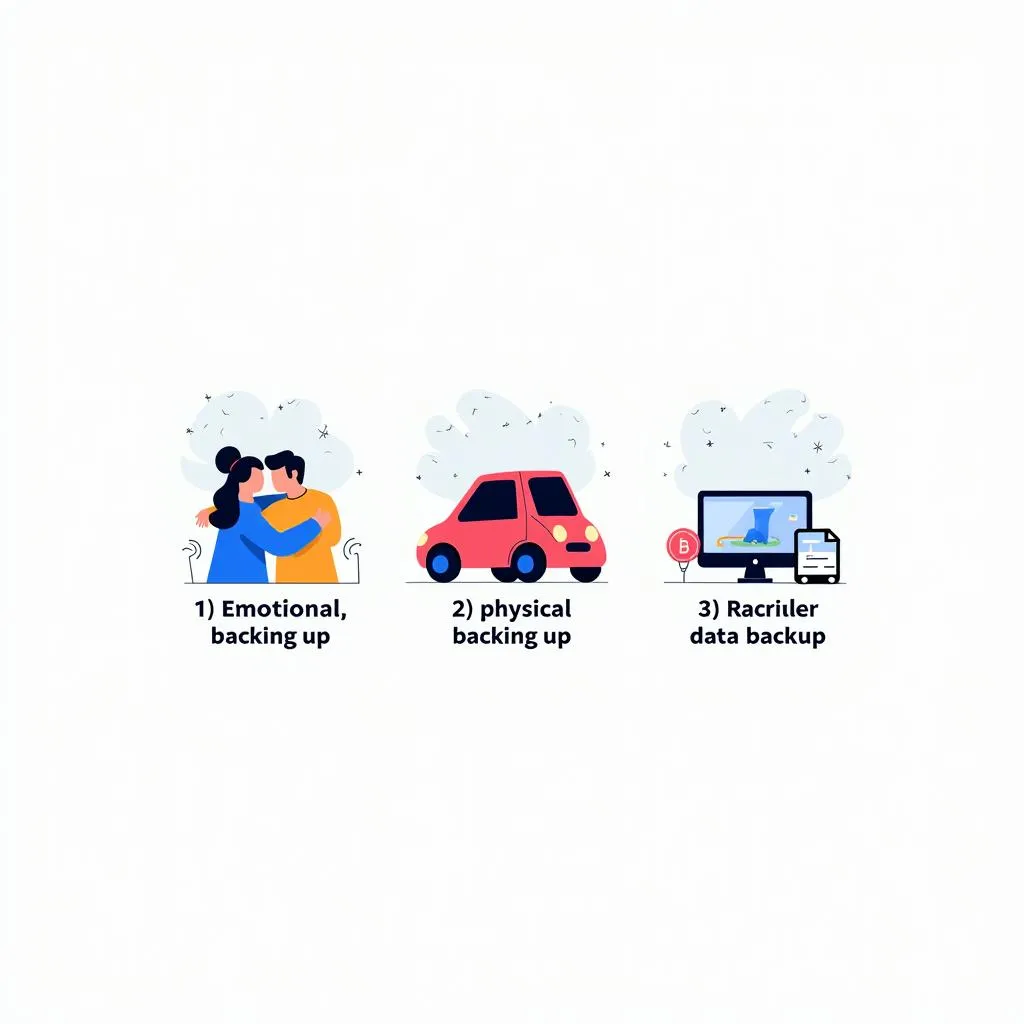1. Definition and Explanation
The phrasal verb “back up” is a versatile expression with multiple meanings, making it an essential component of English language proficiency. In the context of IELTS, understanding and using this phrasal verb correctly can significantly enhance your language skills and overall performance.
Nội dung bài viết
- 1. Definition and Explanation
- Primary Meanings:
- Synonyms and Equivalent Expressions:
- 2. Contextual Usage
- 3. Grammar Analysis
- 4. Application in IELTS
- Speaking:
- Writing:
- 5. Related Phrasal Verbs
- 6. Practice Exercises
- Fill in the Blanks:
- Sentence Transformation:
- 7. Memorization Tips
- 8. Common Mistakes and How to Avoid Them
- 9. Conclusion
- Answers to Practice Exercises:
Primary Meanings:
- To support or defend someone or something
- To move backwards
- To create a copy of data for safety
Synonyms and Equivalent Expressions:
- Support, advocate, stand by (for meaning 1)
- Reverse, retreat, withdraw (for meaning 2)
- Copy, duplicate, save (for meaning 3)
2. Contextual Usage
Understanding how to use “back up” in various contexts is crucial for IELTS success. Here are some examples:
- Support context: “My friends always back me up when I’m in trouble.”
- Movement context: “The driver had to back up the car to avoid hitting the pedestrian.”
- Technology context: “Don’t forget to back up your important files before reformatting your computer.”

3. Grammar Analysis
“Back up” is a separable phrasal verb, meaning that in some cases, you can place the object between “back” and “up.”
- Separable: “I need to back up my files” or “I need to back my files up.”
- However, when using pronouns, they must come between the two parts: “I need to back them up” (not “back up them”).
4. Application in IELTS
Speaking:
In the IELTS Speaking test, using “back up” can demonstrate your vocabulary range and fluency.
Example question: “Describe a time when someone supported you.”
Sample answer: “I remember when I was preparing for a crucial presentation at work. My colleague really backed me up by helping me rehearse and offering constructive feedback. Their support gave me the confidence I needed to deliver the presentation successfully.”
Writing:
In IELTS Writing, “back up” can be used to enrich your essays, particularly in Task 2.
Example: “In academic discussions, it is crucial to back up one’s arguments with solid evidence and reliable sources.”
5. Related Phrasal Verbs
-
Stand up for /stænd ʌp fɔːr/: To defend or support someone or something
Example: “It’s important to stand up for your beliefs, even in difficult situations.” -
Fall back on /fɔːl bæk ɒn/: To rely on something when other options are unavailable
Example: “If the project fails, we can always fall back on our original plan.” -
Come up with /kʌm ʌp wɪð/: To think of an idea or plan
Example: “We need to come up with a solution to this problem quickly.” -
Go along with /ɡəʊ əˈlɒŋ wɪð/: To agree or comply with something
Example: “I didn’t really like the idea, but I decided to go along with it to avoid conflict.” -
Look up to /lʊk ʌp tuː/: To admire or respect someone
Example: “Many young athletes look up to professional players as role models.”
6. Practice Exercises
Fill in the Blanks:
- The manager asked the team to __ __ their proposal with concrete data.
- When faced with criticism, it’s essential to have friends who will __ you __.
- The driver had to __ __ carefully to park in the tight space.
- Always __ __ your work files to avoid losing important information.
- The politician struggled to __ __ his claims during the debate.
Sentence Transformation:
-
Original: John supports his brother in every situation.
Rewrite: John __ __ his brother in every situation. -
Original: The car moved backwards slowly.
Rewrite: The car __ __ slowly. -
Original: She always creates a copy of her thesis work.
Rewrite: She always __ __ her thesis work. -
Original: The evidence supported the witness’s statement.
Rewrite: The evidence __ __ the witness’s statement. -
Original: The team relied on their experience when the new strategy failed.
Rewrite: The team __ __ on their experience when the new strategy failed.
(Answers and explanations will be provided at the end of the article)
7. Memorization Tips
To effectively memorize and use “back up,” consider these strategies:
- Visual Association: Imagine a person literally standing behind (backing up) someone to support them.
- Contextual Learning: Create short stories or scenarios using “back up” in its various meanings.
- Mnemonic Device: Remember “BUS” – Back Up for Support, to associate the phrasal verb with its supportive meaning.
8. Common Mistakes and How to Avoid Them
-
Mistake: Using “back up” as a noun incorrectly.
Correct: “Backup” (one word) is the noun form, while “back up” (two words) is the verb form. -
Mistake: Incorrect word order with pronouns.
Correct: “Back it up,” not “Back up it.” -
Mistake: Overusing in formal writing.
Tip: While appropriate in speaking and general writing, in very formal contexts, consider using more formal synonyms.
9. Conclusion
Mastering the phrasal verb “back up” can significantly enhance your IELTS performance. Its versatility allows you to express support, describe movement, and discuss data management effectively. By incorporating this phrasal verb into your language repertoire, you demonstrate a nuanced understanding of English, potentially boosting your IELTS score. Remember to practice regularly and use it in various contexts to fully internalize its usage.
Answers to Practice Exercises:
Fill in the Blanks:
- back up
- back, up
- back up
- back up
- back up
Sentence Transformation:
- backs up
- backed up
- backs up
- backed up
- fell back
Each answer demonstrates the correct usage of “back up” or related phrasal verbs in different contexts, reinforcing the various meanings and applications discussed in the article.